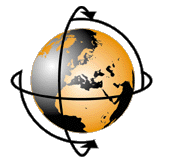The Nestlé Foundation is seeking applications for its Research Grants program to initiate and support research in human nutrition with public health relevance in low-income and lower-middle-income countries. The chosen applicants from across the world will get financial assistance as well as support in the form of capacity building and knowledge resource.
The results of the research projects should ideally provide a basis for implementation and action which will lead to sustainable effects in the studied populations as generally applicable to the at large. They should also enable institution strengthening and capacity building in a sustainable manner in the host country and further cooperation and collaboration between Institutions in developed and developing countries.
The Nestle Foundation offers different award and grant categories using a modular approach:
Training Grant (TG) - to support a small research project such as an MSc or PhD thesis project or another training endeavour
Pilot Grant (PG) - to support pilot research with high potential to lead to a subsequent full research project grant.
Small Research Grant (SRG) - to support a small research study, including the continuation of a TG or also a PG.
Large Research Grant (LRG) - Full grant application of a complete research proposal according to the guidelines
Re-Entry Grants (REG) - to support return and re-establishment of post-graduate students into their careers in their own countries.
